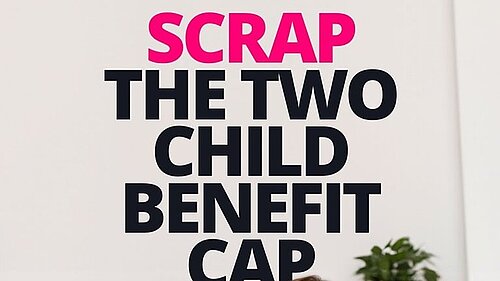Liberal Democrats on Newcastle City Council call for two child benefit cap to be scrapped

STOP PRESS - no mention of lifting the benefits cap during King's Speech on Labour legislation on 17th July.
Cllr Morrissey said :
The COVID-19 crisis powerfully illustrated how unpredictable life can be and how essential it is that the social security system functions as a true lifeline when people need it the most.
However, Instead of supporting the people who need it most, the Chancellor acknowledged Low-income households will feel "real pain" as the cost of living is set to increase faster than benefit payments. It looks like we are now being hit with a perfect storm of the cut in universal credit, the end of furlough, inflation and energy bills increases.
New estimates from the Joseph Rowntree Foundation indicate a typical low-income UK family will be £1,750 worse off by April 2022 as factors combine into a spiralling cost of living crisis.
A further study has predicted around 1,500 additional UK children a year could be removed from their families and taken into care as a result of the explosion in child poverty caused by the removal of the £20-a-week universal credit uplift
The impact of the cut on already struggling families would drive a 5% increase in children in care and see 5,500 extra children placed on child protection plans, with thousands more formally classified as “in need” after being referred to social services.
April 2021 marked the fourth anniversary of the introduction of the UK’s two-child limit, the policy that limits financial support through the benefits system to the first two children in a family. The policy represented a historic moment in the evolution of the welfare state: until then, every child counted when assessing needs and entitlements to benefits. In fact, family allowances, introduced after the Second World War, provided more support for third and subsequent children. The two-child limit also marked a clear departure from European models of social security for larger families. Our neighbours such as France and Germany pay higher rates of child benefit or allowances for third and subsequent children.
As we move into the second year of the COVID-19 pandemic, our approach is not only falling behind our European neighbours: it is at risk of falling behind the US. Entitlements to financial support in the UK have become increasingly conditional on employment status, family size, and children’s place in the family birth order.
Research shows that child-contingent benefits, have been cut by 19% in real-terms since 2010. These developments have culminated in an increase in overall child poverty, driven by a spike in poverty for larger families since 2012.
Much has been made of the newly transformed US Child Tax Credit. It has been projected to cut US child poverty in 2021 by half. The US has long been an outlier among high-income nations for its lack of a dedicated national child benefit or child allowance. However, Biden’s relief package increases benefit levels and creates near-universal eligibility. These reforms will have significant anti-poverty effects for children in larger families. God Bless America….
So..How do we in the UK measure up against Biden’s new policy? The short answer is not well - First, the US’s Child Tax Credit will be paid on a true per-child basis, irrespective of family size and birth order. In the UK this has meant massive reductions in the amount of income available to larger families – of up to £2830 per child each year. At a time when the US is making significant moves to redress discrimination against larger families, the UK’s two-child limit looks increasingly anachronistic and cruel.
Second, the US Child Tax Credit is significantly more generous than the UK’s child benefit - approximately £2600 per child under six and £2200 per child aged 6-17. At a time when child poverty is growing particularly rapidly for children under five, the UK could learn a lesson from Biden’s higher payment rates for younger children. Here in Newcastle it is projected we will have over 5,500 families with 3 or more children by 2022
The pandemic and the recent relief package from the US have offered a stark reminder that the UK safety net has not only become inadequate, but that its structural design is flawed. Entitlements to benefits in the UK have moved away from being linked to social need and instead become linked to behaviour, including the most personal of decisions such as having a child. The mission statement of the two-child limit, that families on benefits should ‘face the same financial choices about having children as those supporting themselves solely through work’, implicitly assumes that families should only have a third or subsequent child if they can guarantee their incomes for eighteen years – an option only available to those with either extraordinary private savings or guaranteed job security.
The pandemic has underlined the fallacy of that argument. Many families who have never claimed benefits before will have found themselves newly affected by the two-child limit and could not have reasonably foreseen the repercussions of the pandemic. The policy will force many families into impossible decisions, such as whether to feed their children or pay the bills, or as recent survey evidence shows, even whether to have an abortion. Polling now shows that most UK adults (61%) and Conservative voters (54%) believe that the two-child limit should be suspended during COVID-19, with a significant proportion of these believing it should be scrapped altogether. Yet the Tory Government fell silent on the issue and simply reiterated its belief that ‘it is fair and proportionate to provide support for a maximum of two children’.
The circumstances of COVID-19 forced the US government, to re-think its approach on child poverty and larger families. It is about time the UK did the same and reinstated child benefit to all children.
